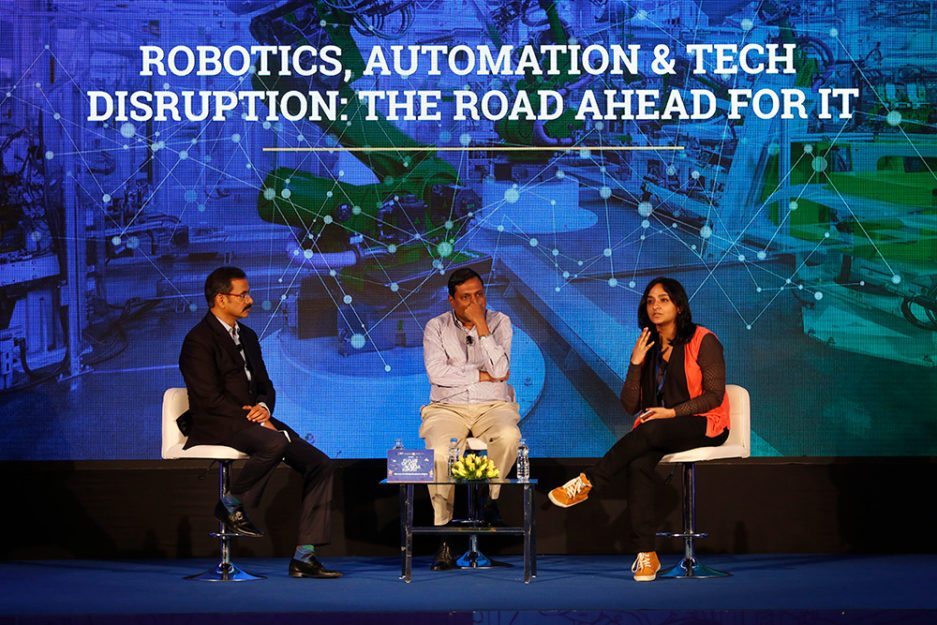In the popular narrative, artificial intelligence (AI) is seen as a threat to humanity, disrupting our way of life and seeking to take our jobs. This is especially true in the context of India’s IT services space, a $146 billion industry providing jobs to millions of Indian graduates. Will AI and automation destroy this major job sector for the country?
Ashwini Asokan, founder and CEO of MadStreet Den, an artificial intelligence (AI) startup, thinks that the dystopian narrative around AI is counterproductive and calls for a more systemic approach to thinking about the impact of AI.
Speaking as part of a discussion titled ‘Robotics, Automation and Tech Services’ at the Future of Jobs in India summit organised by FactorDaily in association with CareerNet, Asokan said, “Who’s going to teach these different kinds of AI? For instance, we’ll need to build computer vision-based systems that teach machines to see. There’s decades of work that’s coming up for humans teaching AI.”
“Who’s going to teach these different kinds of AI? There’s decades of work that’s coming up for humans teaching AI”
— Ashwini Asokan, founder of MadStreet Den
Joining Asokan in the discussion were Shanmugam Nagarajan (Nags), co-founder of 7, a customer experience software and services company headquartered in California, and TK Kurien, executive vice-chairman of Wipro.
Elaborating on her point on AI and its impact on jobs, Asokan said that even in instances where AI can take up a job, it needs human augmentation to account for cases where it fails. “What happens when AI fails — say when a self-driving car fails? I think we need to start focusing on how humans can augment and work with it in our society at least for the next decade or two.”
Kurien, on the other hand, believes that digitisation of businesses together with AI presents a credible threat for Indian IT services companies. He said, “Typically, when large organisations start a journey of digitisation, the first thing they do is simplify, which hits the BPO business. Next comes digitisation where organisational friction gets reduced significantly, and the last piece is disruption.”

He thinks that this disruption is what has IT firms scrambling to be relevant. One of the biggest challenges here, he feels, is getting employees — especially those who’ve specialised in a particular area for years — to adapt to a new environment that demands a wide range of skills. The other big challenge is that a lot of low-end jobs will disappear.
“We’ve been making substantial bets in this area. For example, Wipro recently acquired Topcoder (a company that administers contests in computer programming), which has got a million people working on its platform,” he said. Kurien concluded that the IT services industry has to adapt and that it is too big and profitable to die.
While echoing Kurien’s thoughts, Nags stated that we may be over-hyping the disruption being caused by new technologies. Reminding the audience that most of the fears of technological disruption in the past did not play out in their full intensity, he said, “The future is bright for those who are willing to change. Changes won’t happen overnight, but over a period of time like any other economic change.”
Subscribe to FactorDaily
Our daily brief keeps thousands of readers ahead of the curve. More signals, less noise.
To get more stories like this on email, click here and subscribe to our daily brief.
Update: Edited on Dec 1, 2016 at 3.35 pm to correct a misspelling (Ashwini Asokan's name was spelt as 'Ashokan'). Careernet is the sponsor of our Future of Jobs in India coverage and events. The coverage and the content of the event are editorially independent. For more on how we separate our newsroom and our business functions, read our code of conduct here.








